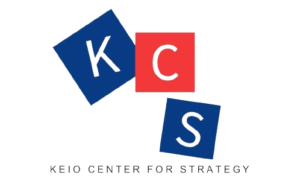About Us
What is "Keio Center for Strategy"?
In the midst of increasing uncertainties and unpredictability in the world affairs, Keio Center for Strategy (KCS) was established in March 2023 by synthesizing Strategic Studies, International Security Studies, International Relations, and Geoeconomics. These research areas are ordinally divided into individual departments within a university. We include perspectives such as the public-private partnerships and economic security, and will go beyond institutional and disciplinary barriers.
Keio Center for Strategy will organize a forum where peoples from academic, business community and government participate and contribute, and then promote applied policy-oriented research based on a broader perspective. The Center also advances the international network with leading think-tanks across the globe. Together with these, the Center will provide valuable resources based on the top-level experts at Keio University.


Yuichi Hosoya
Director of Keio Center for Strategy (KCS)
Greetings
Currently, the world is facing significant turmoil. The COVID-19 pandemic has divided the world, Russia’s invasion of Ukraine startled the conventional order, and the rise of nationalism and populism is disrupting the political basis of advanced democratic states. In such a context, it is increasingly important for each country to construct and implement strategies from a long-term and broad perspective.
The Keio Center for Strategy (KCS) was founded in March 2023 amidst these global uncertainties. Our goal is to transcend the narrow confines of individual academic fields, exploring various issues in an interdisciplinary and practical manner, and ultimately sharing the findings from our research.
Yukichi Fukuzawa, the founder of Keio University, emphasized the importance of “practical studies (Jitsugaku)” in academia. I believe this approach involves exploring the truth empirically and solving problems. At Keio Center of Strategy, we inherit his will and will tackle various issues facing Japan and the world, based on an empirical and academic basis.

Satoru Mori
Deputy Director of KCS
The term “strategy” originated in ancient Greece. perception of warfare changed over time, so did its definition, expanding from a purely military concept to a term applicable across various fields. Lawrence Friedman, a leading British scholar of strategy, traced the history and evolution of the term “strategy” in an article he contributed to The New Makers of Modern Strategy: From the Ancient World to the Digital Age, a collection of articles published in its third edition in May 2023. In the article, he noted that “over the past 250 years, ‘strategy’ has become an umbrella term of potential relevance to all human affairs.”
To navigate the contemporary world filled with uncertainty and fluidity, we must grasp the risks we face, prioritize them, and continuously develop “strategies” to achieve the objectives set forth by these efforts. Further, we have to decide how to allocate the limited resources within this intellectual framework.
As the world enters a phase where major powers are becoming increasingly unilateralist, and shared norms and values are experiencing a decline, it becomes crucial to engage in thorough discussions and deeply reflect on Japan’s approach to “strategy.” This requires positioning within the international intellectual network and having a calm understanding of the limitations inherent in strategies.
I hope the Keio Center for Strategy becomes a focal point for such intellectual exchange. I am grateful for the opportunity to contribute to this commendable initiative and look forward with gratitude to various encounters and the myriad possibilities that may arise.

Michito Tsuruoka
Deputy Director of KCS
Despite the challenges in Japan and worldwide are piling up and becoming more complex, our resources remain limited. In order to use the available resources and achieve our goals effectively, a well-advised strategy is essential. To conceive such a strategy, we need a variety of knowledge, and when considering specific areas, policy analysis becomes indispensable. A strategy can only be created by thoroughly analyzing real policy issues. Developing specialists capable of conducting policy research is also a major challenge. To this end, the Keio Center for Strategy aims to become a hub where faculty and researchers from different departments and campuses at Keio University can collaborate with external parties, including global stakeholders, to tackle domestic and international issues and conceive strategies.
